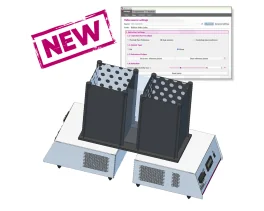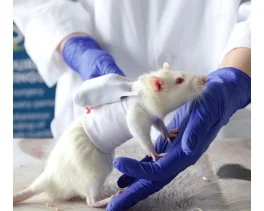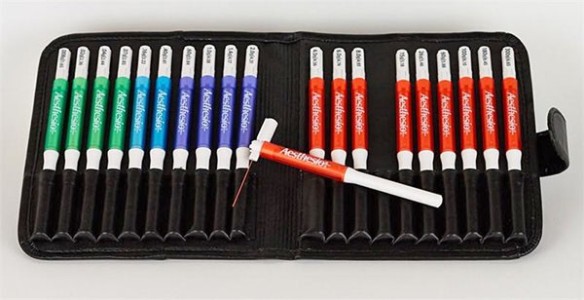Authors
CZ Wang, H Yao, CF Zhang, L Chen, JY Wan et al
Lab
Department of Anesthesia & Critical Care, and Tang Center for Herbal Medicine Research, University of Chicago, Chicago, IL 60637, USA
Journal
International Immunopharmacology
Abstract
Inflammatory bowel disease (IBD) is a significant public health problem in the United States. Abdominal pain is a major complaint among individuals with IBD. Successful IBD management not only controls enteric inflammation, but also reduces abdominal discomfort. Recently, increased attention has been focused on alternative strategies for IBD management. HPLC/Q-TOF-MS analysis was employed to evaluate the intestinal microbiome's biotransformation of parent American ginseng compounds into their metabolites. Using a DSS mouse model, the effects of American ginseng microbial metabolites on chemically induced colitis was investigated with disease activity index and histological assessment. Expressions of inflammatory cytokines were determined using real-time PCR and ELISA. Abdominal pain was evaluated using the von Frey filament test. After the gut microbiome's biotransformation, the major metabolites were found to be the compound K and ginsenoside Rg3. Compared with the DSS animal group, American ginseng treatment significantly attenuated experimental colitis, as supported by the histological assessment. The enteric microbiome-derived metabolites of ginseng significantly attenuated the abdominal pain. American ginseng treatment significantly reduced gut inflammation, consistent with pro-inflammatory cytokine level changes. The gut microbial metabolite compound K showed significant anti-inflammatory effects even at low concentrations, compared to its parent ginsenoside Rb1. American ginseng intestinal microbial metabolites significantly reduced chemically-induced colitis and abdominal pain, as mediated by the inhibition of pro-inflammatory cytokine expression. Intestinal microbial metabolism plays a critical role in American ginseng mediated colitis management.
BIOSEB Instruments Used
Von Frey Filaments (Bio-VF-M)
Source :
https://www.sciencedirect.com/science/article/pii/S1567576918305794

 Douleur - Allodynie/Hyperalgésie Thermique
Douleur - Allodynie/Hyperalgésie Thermique Douleur - Spontanée - Déficit de Posture
Douleur - Spontanée - Déficit de Posture Douleur - Allodynie/Hyperalgésie Mécanique
Douleur - Allodynie/Hyperalgésie Mécanique Apprentissage/Mémoire - Attention - Addiction
Apprentissage/Mémoire - Attention - Addiction Physiologie & Recherche Respiratoire
Physiologie & Recherche Respiratoire




































 Douleur
Douleur Système Nerveux Central (SNC)
Système Nerveux Central (SNC)  Neurodégénérescence
Neurodégénérescence Système sensoriel
Système sensoriel Système moteur
Système moteur Troubles de l'humeur
Troubles de l'humeur Autres pathologies
Autres pathologies Système musculaire
Système musculaire Articulations
Articulations Métabolisme
Métabolisme Thématiques transversales
Thématiques transversales Congrès & Meetings
Congrès & Meetings 